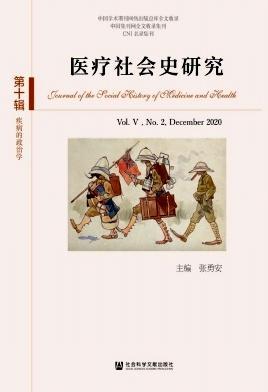Cape Town and 'country' doctors in the Cape Colony during the first half of the nineteenth century.
引用次数: 7
Abstract
This paper argues that during the 'golden' age of medical reform in the first half of the nineteenth century in the Cape Colony there was significant differentiation within the medical profession which contributed to a slow and uneven process of professionalization in spite of comprehensive and early legal regulation under one licensing body. Differences in permitted practice, settlement patterns, economic and organizational opportunities gave doctors in Cape Town, the colony's biggest and most important city, greater incentives and more scope to develop professional regulation and organization than those in the rest of the colony. A government Ordinance passed in 1807 gave regularly-trained medical practitioners a legal monopoly over medical practice, but did not initially prevent those practising outside Cape Town from selling both medicines and medical advice. Cape Town doctors thus enjoyed greater social differentiation from tradesmen and better legal control over competition from druggists and 'irregulars' than country practitioners. The difference between practitioners in Cape Town and elsewhere remained important even after new regulations removed legal distinctions in 1830. While country practitioners now sought tighter regulation over permitted practice they could not easily make common cause with the more powerful professional medical élite in Cape Town. This élite group had vested social and economic interests in maintaining their privileged status within the Cape profession, especially when threatened by local recession and political and economic competition from Eastern Cape doctors in the 1850s.19世纪上半叶开普敦和开普殖民地的“乡村”医生。
本文认为,在19世纪上半叶开普殖民地医疗改革的“黄金”时代,尽管在一个许可机构下进行了全面和早期的法律监管,但医学界内部存在显著的分化,这导致了专业化的缓慢和不平衡的过程。在允许执业、定居模式、经济和组织机会方面的差异,给了殖民地最大、最重要的城市开普敦的医生更大的激励和更大的空间来发展专业监管和组织,而不是殖民地其他地方。1807年通过的一项政府法令给予正规训练的医生在医疗实践上的合法垄断,但最初并没有阻止那些在开普敦以外执业的人销售药品和医疗建议。因此,开普敦的医生与商人相比享有更大的社会差异,对来自药剂师和“非正规人员”的竞争有更好的法律控制。即使在1830年新的法规消除了法律上的区别之后,开普敦和其他地方的从业者之间的差异仍然很重要。虽然乡村医生现在寻求对允许的行医进行更严格的监管,但他们不容易与开普敦更强大的专业医疗人员达成共识。19世纪50年代,当当地经济衰退和来自东开普省医生的政治和经济竞争威胁到他们时,这些人在维持他们在开普职业中的特权地位方面获得了社会和经济利益。
本文章由计算机程序翻译,如有差异,请以英文原文为准。
求助全文
约1分钟内获得全文
求助全文

 求助内容:
求助内容: 应助结果提醒方式:
应助结果提醒方式:


